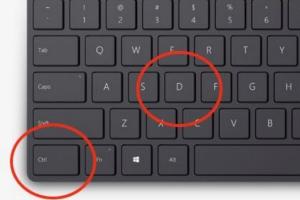When making various kinds of transactions between interdependent participants, transfer pricing occurs. Due to this state of interdependence, such firms may set prices different from market prices. That is, from prices established in transactions between independent companies.
Consider which transactions are currently controlled. As well as their features, which are necessary to pay attention to interdependent companies.
International Legislation
Tax control of transfer transactions takes place both nationally and internationally.
Among the global regulations governing controlled transactions, the following are highlighted:
- OECD leadership (transcript - Organization for Economic Co-operation and Development). It regulates transfer pricing for multinational companies and tax services.
- OECD Declaration on BEPS. The document is an OECD action plan. This is counteraction to the erosion of the tax base, the unfair removal of income from taxation. Within the framework of this plan, it is also planned to develop a number of TP rules (decryption - transfer pricing). Such regulations can improve the transparency of various transactions between companies. This is achieved by collecting additional data on their activities. The introduction of such rules, as practice shows, allows you to reduce business costs.

National Legislation
Consider how regulated transactions are regulated directly in the Russian Federation. At the level of Russian law, this is based on the provisions of Sec. V.1 of the Tax Code. It is devoted to issues related to interdependent persons, general provisions on price formation, taxation, tax control of such transactions (concluded by interdependent persons). This section was introduced by Federal Law No. 227 (2011).
The purpose of his placement in the Tax Code is to prevent the withdrawal of taxable income from the borders of the Russian Federation, the exclusion of various possibilities of price manipulation in contracts concluded by interdependent taxpayers (those who use different taxation regimes).
Previously controlled transactions in the Russian Federation were regulated by Art. 20 "Interdependent participants in transactions" and Art. 40 "Principles for determining for tax purposes the value of products, works, services" of the same Tax Code.
Varieties
Controlled transactions between interdependent participants are governed by Ch. 14.1 Section V.I of the Russian Tax Code. Two main groups of these transactions are distinguished here:
- Prisoners of persons that are interdependent.
- Transactions equal to concluded between such interdependent persons.
Controlled transactions under the tax code are also categories of homogeneous transactions completed with the aim of artificially creating the conditions under which this operation externally ceases to fit the characteristics of a controlled one.
What are the new conditions in this area?

Updating Russian legislation
As for the provisions on controlled transactions in the Tax Code of the Russian Federation, it should be noted that the legislation in this area changed in January 2018. Then the updated version of Section V.I of the Code entered into force. She introduced provisions on a new controlled entity in the field of transfer pricing. They became international firms and corporations.
Let us consider in more detail the important provisions of the updated Russian tax legislation.
Fundamental criteria
Consider the criteria for controlled transactions that are currently relevant:
- The amount of profit under this contract for the year exceeds 1 billion rubles. Here it is worth making a clarification: this refers to the amount of income from completed transactions with one partner, counterparty, client.
- Cases when one of the parties to the transaction applies tax special regimes (UTII, UTII) for its activities, and the other side of the transaction does not use them in their relation. Such contracts will be considered as controlled transactions between related parties if the total amount of income on them exceeds 100 million rubles.
- One of the participants in the transaction is determined by the payer of mineral extraction tax, which is calculated at the rate set in percentage. The following condition also applies: a transaction is deemed to be controlled if its subject is a mineral, which is considered a taxable item in accordance with the mineral extraction tax.
- If at least one party to the transaction is relieved of the obligation to pay tax on the income of the organization, company, it applies a tax rate of 0%, while other participants in the transaction do not have such preferences.
- At least one of the partners is a participant in the regional investment project, which gives him the right to apply a reduced tax rate on income to the treasury of the subject, or 0% rate for tax deductions to the federal budget.
- At least one of the parties to the transaction applies the investment deduction for corporate income tax provided for in accordance with Art. 286.1 Tax Code.
For transactions listed in paragraphs. 3-6, a threshold profit margin is set, above which transactions will be recognized as controlled. It amounts to 60 million rubles in one calendar year.

Complete list of criteria
Which deals are controlled? A complete list of criteria for this type of transaction can be found in Art. 105.14 Tax Code.
As you may have noticed, these are internal transactions and contracts. As for foreign economic cooperation, transactions concluded with non-residents of the Russian Federation, various kinds of foreign firms and enterprises, they are all controlled. Without any dependence on the amount of profit on these transactions for the year.
Equated to transactions concluded between interdependent
The taxation of controlled transactions, respectively, is regulated by the Tax Code of the Russian Federation and a number of international normative acts examined by us. We have already examined the criteria regarding the cooperation of interdependent persons. Now imagine the characteristics of transactions that are considered equivalent to it:
- The whole set of transactions related to the sale of goods, the implementation of work, services that were completed with the participation of formal intermediaries. What does it mean? The transaction involved many people who are not interdependent, but at the same time and do not perform any functions other than organizing this sale of products, services, works between interdependent participants. Such intermediaries do not carry risks, do not involve assets.
- Transactions in the field of foreign sales of goods in the field of global exchange trading. At the same time, products sold should belong to the following categories: oil and a group of products of its processing, non-ferrous and ferrous metals, mineral fertilizers, precious metals and precious stones.
- Transactions where one of the parties is a person who is a resident of a state acting, according to the Russian Ministry of Finance, as an offshore. A complete list of offshore countries is approved by the Ministry of Finance in accordance with paragraphs 1, paragraph 3 of Art. 284 Tax Code.

Are not controlled
We determined the criteria for controlled transactions on loans, purchases, etc. Now let's see which deals are not included in their number. Their complete list is presented in paragraph 4 of article 105.14 of the Tax Code. We list the most characteristic.
Transactions between participants, representatives of one consolidated category of taxpayers.Among them, only contracts that were concluded by taxpayers of mineral extraction tax, charged at a percentage rate, will be controlled.
Transactions that simultaneously satisfy the following legislative requirements will not be controlled either:
- Participants are registered in the same Russian entity.
- Individuals participants do not have separate divisions of their organizations in other regions of the Russian Federation, as well as outside the borders of Russia.
- Parties to the transaction do not pay income tax to the budgets of other constituent entities of the Russian Federation.
- Participants do not have expenses that are taken into account when calculating income tax.
- There are not sufficient circumstances, conditions for the recognition of transactions made by these participants, controlled in reliance on paragraphs. 2-7 p. 2, Art. 105.14 Tax Code.
The transactions specified in Clause 1, Article 1 will not be considered controlled in Russia either. 275.2 Tax Code committed in the course of business, which is associated with the production of hydrocarbons in the offshore new field (if transactions are made in relation to the same field).
Various interbank deposits and loans open for up to 7 days inclusive are not controlled.
Transactions in the sphere of military-technical cooperation of the Russian Federation with other countries, which take place on the basis of Federal Law No. 114 (1998), are not controlled.
Transactions on the provision of guarantees and sureties in the event that all participants are Russian organizations that are not related to banking will also not be controlled.
Interest-free loan transactions between related parties may also be uncontrollable. But only on condition that the participants, beneficiaries reside in the territory of the Russian Federation or have permanent registration within it.
Notification of controlled transactions is not sent in the case of contracts, the amount of which does not exceed the legislation for transfer transactions.
Accordingly, transactions that are not legally recognized as controlled cannot be objects of tax control. Even in order to verify the conformity of prices established in their course with market prices.

Determination of market value
We figured out in which cases the notification of controlled transactions will be relevant, and in which - not. For the tax service, such contracts are primarily of interest because of the price set in their provisions - whether it corresponds to the market price or is it underestimated or overstated.
As for the Russian Federation, our country has a “world principle” regarding the regulation of transfer pricing. This is the so-called "outstretched arm principle." Here, for tax purposes, the amount of payments, prices for transactions with interdependent participants (and parties equated to them) is recalculated relative to market indicators as if these companies and organizations are independent of each other. Thus, prices are not checked for all transactions in general, but only for controlled ones.
But at the same time there is no universal methodology for finding a market price. As for the Russian Tax Code (Article 105.7), it allows the use of only 5 methods:
- The method of market comparable prices. He is a priority in this list. To use it, you must have at least one single comparable transaction in the relevant markets, and sufficient information on its conditions.
- Cost method of subsequent implementations. It is chosen priority in the case of the purchase of goods from an interdependent participant and the resale of these products to an independent person without processing.
- Cost method. It is a priority in evaluating transactions related to services.
- The method of comparable profitability. It is used in case of insufficient or complete lack of data, on the basis of which a reasonable conclusion can be made about the existence of the necessary level of comparability of the financial conditions of the compared transactions.Used when it is impossible to apply the method of subsequent implementation. Or an expensive method.
- Income distribution method. It is used if it is impossible to use other methods. Or, if there is a fact of ownership, use of the participants of the analyzed transaction, rights to any objects of intangible assets.

Reasons for choosing a method
We continue to analyze the filling of controlled transactions. It is important to legally correctly choose one method or another for the analysis of set prices within such transactions.
Here, analysts rely on the following:
- The essence of this transaction. That is, the functions of its participants are determined, the assets used and the risks that are taken by each of the parties are studied. In the analysis, the specialist, in particular, relies on Art. 105.5, 105.6 Tax Code.
- Comparison of the terms of the transaction between interdependent participants with the terms of a similar transaction, but already between independent participants.
For the analysis, the Tax Code allows the use of only publicly available data sources, open information about taxpayers. This gives the latter a definite advantage in preparing the justification of the prices of the contract.
If the fact of non-payment / incomplete payment of tax was revealed as a result of the application of non-market prices by interdependent participants, a liability in the form of a fine is imposed. This is 40% of the amount of unpaid tax contribution. But not less than 30 thousand rubles (under Article 129.3 of the Tax Code).
Notification
If the taxpayer understands that the transaction planned by him according to certain criteria can be classified as controlled, he is obliged to submit a corresponding notice. Its composition is regulated by paragraph 3 of Art. 105.16 Tax Code. The notification must have four data blocks:
- The calendar year to which this tax notice will apply.
- The subject of this transaction.
- Information about the parties to the transaction.
- The amount of income / expenses under this contract.
The deadline for submitting such notifications expires in May of the year immediately following the reporting one. The document can be provided both in electronic and in paper form. The form of such a notification is not arbitrary. It is approved by a special document - Order of the Federal Tax Service No. MMV-7-13 / 524 @ (2012).
The document is submitted to the department of the Federal Tax Service at the location of the taxpayer. As for the largest taxpayers of the Russian Federation, they provide information at the place of registration.
Both for the failure to provide such a notice and for the indication in it of data that do not correspond to reality, the taxpayer is held liable in the form of a fine of 5,000 rubles (under Article 129.4 of the Tax Code).

We have analyzed the main criteria for transactions that in the Russian Federation are considered controlled by NK. Basically, these are contracts between interdependent participants and persons equated to them. They must send a notification to the Federal Tax Service if the transaction they plan fits the definition of controlled.









